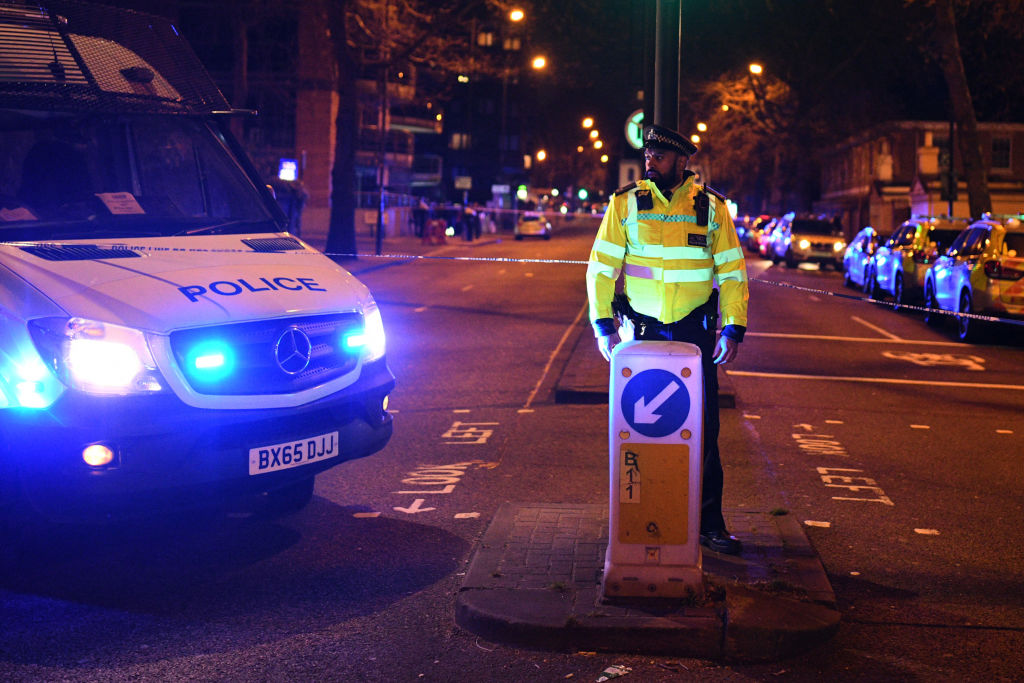In January 1993 Labour’s Shadow Home Secretary Tony Blair announced a key pillar of the opposition’s future election policy in a New Statesman op-ed. He wrote that a Labour government would be ‘tough on crime and tough on the underlying causes of crime’ – a phrase that would be often repeated after he ascended to the Labour leadership in 1994.
This policy was symbolic of New Labour’s third-way centrism. It focused on personal responsibility and punishing offenders, while also implementing grassroots programmes to stop the root causes of violent crime.
With an election likely around the corner, the current Labour leader would do well to take a page out of Blair’s book and focus on law and order as a winnable battleground issue. Figures from the Office for National Statistics show that knife crime in England and Wales is currently at an all-time high.
In the year to March there were 43,516 recorded offences – a 42 per cent increase since March 2011. Meanwhile, incidents of violent crime and sexual assault on public transport have risen by 16 and 8 per cent respectively in the past year. An Ipsos Mori poll in January revealed that almost one-in-five people regard crime as one of the biggest issues facing the country at present.
And yet, it is a problem that has been left to the Tories to occupy, with scarce few words dedicated to the issue from Jeremy Corbyn or Shadow Home Secretary Diane Abbott. Meanwhile, Boris Johnson formally announced plans for 20,000 new police officers and £750 million in spending on Thursday. Leaving law and order to be a Tory issue once again is politically unwise and morally indefensible for the party that says it stands for the many.
Blair understood in the nineties something the current Labour leadership has been unable or unwilling to grasp; that knife crime disproportionately affects traditional Labour voters and at its core should be a signature party issue. It should be considered a moral obligation for Labour – as the party which promises to stand up for the working class and ethnic minorities – to be the champions of law and order.
It’s in London boroughs such as Hackney, Haringey and Tower Hamlets that experience some of the highest rates of youth violent crime in the country. These areas have two vital things in common; they have a higher proportion of BAME residents than the national average and are also within Labour-held electorates.
Blair wrote in 1993, regarding violent crime, that:
‘It is people who live on inner-city estates or use public transport – many of them Labour voters – who suffer most [from violent crime].
It therefore intensely interests our core voters, who look to Labour to reflect their anxiety and anger, not to respond with patronising sympathy or indifference.’
The very same rings true today, however the difference is that precious little is ever said by the current Labour leadership about law and order. The party’s 2017 manifesto devotes just 1.5 pages out of 122 to the issue of domestic crime, with no specific mention of how to fight gang violence, drug trafficking or knife crime in inner-cities.
Gang violence and county lines drug operations are tearing apart black communities across the country and yet there are virtually no answers from the opposition. This is the same opposition that so often harks on about being the champion of ethnic minorities, the protectors of the working class and the defenders of all that is morally righteous in society. The party too often instead concerns itself with woke trivialities and identity politics in a bid to placate its increasing cosmopolitan membership at the expense of its traditional working class base.
But not only is it morally imperative for Labour to take the lead on this issue, it is also electorally sensible. If Corbyn were to push the need for a stronger police force and discuss strategies to stop knife crime it would show the electorate that he runs a serious party that cares about real issues. It would signal to people that the Labour Party is grounded in the problems of the working class and genuinely understands what is happening in Britain.
Surely this would be an open goal for Labour on the campaign trail. The government’s austerity cuts have ravaged the police force and resulted in 21,732 fewer officers in 2018 compared to 2010 and a 40 per cent reduction in community support officers over this period. Labour could use austerity as a truncheon to beat the Conservatives with during a campaign, while also demonstrating the party stands up for the rights of ordinary folks. Johnson’s pledge of 20,000 police officers could be framed by Corbyn as garden variety pork barrelling from a party that cares little for the concerns of BAME communities.
It’s a sign of the degradation of the Labour Party that this is very unlikely to ever happen. Instead we’ll get more of the same as Corbyn and his cronies continue to ignore the plight of the working class the party was created to protect.






Comments